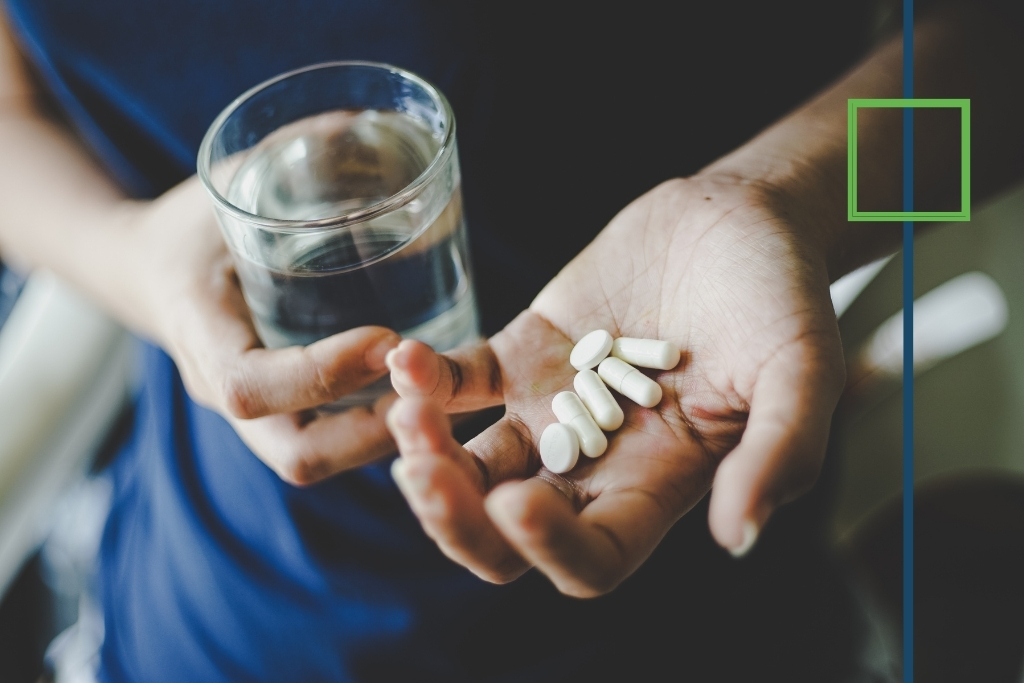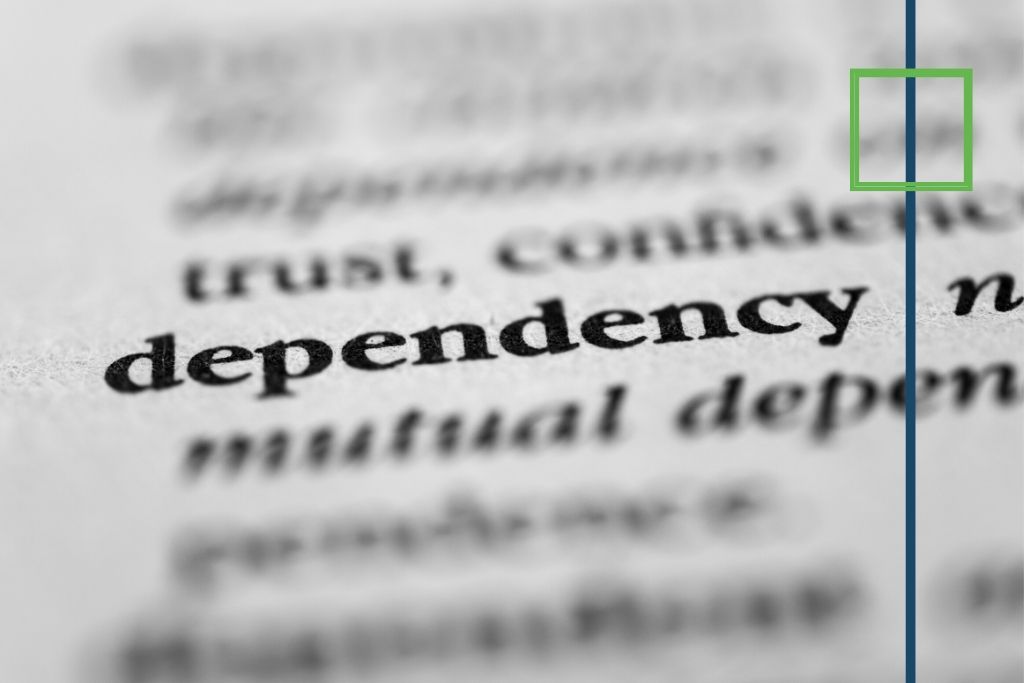Hydrocodone vs Oxycodone – What are the Similarities?
Prescription drug addiction has become an epidemic in the United States. According to the National Institute on Drug Abuse (NIDA) [1], a whopping 18 million individuals have reported misusing or abusing prescription drugs at least once in 2017. Hydrocodone and Oxycodone are two of the biggest culprits.
Hydrocodone and oxycodone are the Schedule II opioids most often prescribed in primary care to relieve moderate-to-severe cancer-related or acute pain. According to the US Drug Enforcement Agency (DEA) [1], substances in this schedule have a high potential for substance abuse, leading to severe physical or psychological dependence.
Hydrocodone and oxycodone are powerful narcotic painkillers. Both are available only with a prescription from your doctor. Both drugs interfere with your central nervous system’s (CNS) pain signals. They prevent the nerves in your body from sending pain signals to your brain.
Both hydrocodone and oxycodone are a type of painkiller called an opioid, which can be addiction-forming. Opioids come from the poppy plant, but there are human-made versions, too. Studies show both hydrocodone and oxycodone work well for short-term pain. But when you take them for more than a couple of months, your body can become used to the drug, and it won’t work as well. Because of this, you need more of it to feel the same effects.


Get Your Life Back
Find Hope & Recovery. Get Safe Comfortable Detox, Addiction Rehab & Mental Health Dual Diagnosis High-Quality Care at the We Level Up Treatment Centers Network.
Hotline (877) 378-4154Hydrocodone vs Oxycodone – What are the Differences?
There is an ongoing debate on the difference between hydrocodone vs oxycodone. They were also referred to as Percocet, a well-known brand of oxycodone, and hydrocodone is the active ingredient in the well-known painkillers Vicodin, Norco and Norco, and can be combined with ibuprofen to manage pain and reduce fever and inflammation. These two drugs are opioids or narcotic analgesics used to treat moderate to severe pain. Both drugs are highly addictive and have contributed to the many drug-related overdoses and deaths during the ongoing opioid crisis. The differences between the two prescription drugs are fundamentally in the side effects they cause.
This is going to get a bit technical, but the main difference between hydrocodone vs oxycodone is that oxycodone has an extra oxygen atom. Additionally, oxycodone is derived from thebaine and is only used to relieve pain. Hydrocodone, on the other hand, is synthesized from codeine and can be taken to relieve both cough and pain. Similar to oxycodone, drugmakers often combine hydrocodone with acetaminophen and other substances to create effective painkillers.
There was a time that hydrocodone was the most prescribed medication in the US. But after it was reclassified as a Schedule II drug, meaning it had medical use and a high potential for addiction, sales dropped, and oxycodone (OxyContin) became more popularly prescribed.
Oxycodone appears to have a higher abuse liability potential compared with hydrocodone. Hydrocodone is also effective as a cough suppressant. However, notwithstanding the dangers of prescription opioid use, the likelihood of long-term use was substantially greater for individuals treated with hydrocodone vs oxycodone. This is according to the study published by the National Institute on Biotechnology Information (NCBI) [2].
Hydrocodone vs Oxycodone – Are These Drugs Addictive?
Medical experts generally prescribe these two drugs as a last resort when other medications do not keep the pain under control. They do this because both drugs pose a high risk of addiction and dependence even when used as prescribed [3].
To be a responsible person who uses this medication and avoids misuse and addiction, use this drug as prescribed. Keep an honest and open discussion with your doctor while taking these (or any other) prescribed drugs.
Don’t abruptly stop taking them, as that will most likely result in you experiencing withdrawal symptoms. Also, don’t snort, crush, or inject any substance containing oxycodone or hydrocodone.
If you feel you are beginning to become dependent on any substance, call your doctor immediately. There is a difference between dependency and addiction. When you are dependent on the medication, your body has become so used to the substance or drug that it can no longer function normally without them.
Addiction is when you become reckless and cannot quit or stop yourself from using. No matter what point you may find yourself at, reach out for help. There is no shame in asking for help.
Hydrocodone vs Oxycodone – Common Side Effects
Both hydrocodone and oxycodone can cause many side effects. Some can be serious. Here are some possible side effects of these medications.
- Dry mouth
- Itching
- Constipation
- Sweating
- Nausea and vomiting
- Serious breathing problems, particularly in the first 24–72 hours of consumption
- Dizziness
- Headache
- Reduced sex drive
- Fatigue
- Swelling of the face, lips, and tongue
- Trouble breathing or swallowing
Get Help. Get Better. Get Your Life Back.
Searching for Accredited Drug & Alcohol Rehab Centers Near You? Or Mental Health Support?
Even if you have failed previously, relapsed, or are in a difficult crisis, we stand ready to support you. Our trusted behavioral health specialists will not give up on you. Call us when you feel ready or want someone to speak to about therapy alternatives to change your life. Even if we cannot assist you, we will lead you wherever you can get support. There is no obligation. Call our hotline today.
FREE Addiction Hotline – Call 24/7Hydrocodone vs Oxycodone – Severe Side Effects
Severe, though less common, side effects include:
- Seizures
- Confusion
- Painful urination
- Feeling like you might pass out
- Rapid heartbeat (leading to a possible heart failure)

Hydrocodone vs Oxycodone – Other Side Effects
Individuals who consume any opioid medication for a relevant amount of time may experience tolerance for the drug. Tolerance means that an individual needs to take increasing amounts of a drug to achieve the same effect. Therefore, tolerance increases the risk of substance abuse.
Someone who stops using an opioid medication may experience withdrawal, especially if they have been consuming high doses of the drug or have been using it for an extended period. Withdrawal happens because the body is learning to adjust to the absence of opioids in its system. Some potential symptoms of opioid withdrawal include:
- Anxiety
- Runny nose
- Sweating
- Yawning
- Insomnia
- Muscle aches
Hydrocodone vs Oxycodone – Overdose Symptoms
Taking too much hydrocodone and oxycodone can lead to an overdose, which causes these symptoms:
- Seizures
- Weakness or dizziness
- Slow heartbeat
- Trouble breathing
- Cold, clammy skin
First-class Facilities & Amenities
World-class High-Quality Addiction & Mental Health Rehabilitation Treatment
Rehab Centers TourRenowned Addiction Centers. Serene Private Facilities. Inpatient rehab programs vary.
Addiction Helpline (877) 378-4154Proven recovery success experience, backed by a Team w/ History of:
15+
Years of Unified Experience
100s
5-Star Reviews Across Our Centers
10K
Recovery Success Stories Across Our Network
- Low Patient to Therapist Ratio
- Onsite Medical Detox Center
- Comprehensive Dual-Diagnosis Treatment
- Complimentary Family & Alumni Programs
- Coaching, Recovery & Personal Development Events
Hydrocodone vs Oxycodone – Drug Interactions
Your risk for serious side effects may be greater if you take other medications or drugs with oxycodone or hydrocodone. Make sure your doctor knows about all the supplements or medications you use.
Both oxycodone and hydrocodone can interact with many different drugs, including some medications belonging to the following groups:
- Sedatives
- Antibiotics
- Antifungals
- Ativirals
- Muscle relaxers
- Anxiety medications
Opioid medications also interact with alcohol and some recreational drugs, as well as certain supplements.
To avoid the risk of drug interactions, you should provide your doctor with detailed information about all of the prescription drugs and over-the-counter (OTC) supplements you are taking. You should also refrain from drinking alcohol or using recreational drugs while taking either oxycodone or hydrocodone.
Other nonprescription drugs and supplements to avoid include:
- Marijuana and cannabis products
- Alcohol
- Kava kava
- St. John’s wort
Long-term use of these drugs (like for ongoing pain) can promote addiction and misuse. That’s why it’s vital to keep your doctor’s appointments. They’ll work with you to make sure you use them the right way.
Hydrocodone vs Oxycodone – Issues You Should Be Aware Of
Breathing Problems
- Oxycodone and hydrocodone can slow your breathing and keep you from getting enough oxygen. That can be risky if you already have breathing problems, including asthma and COPD.
Constipation
- Opioids can cause severe constipation. You’ll probably need to take them with a stool softener or laxative. Don’t use them if you have an intestinal blockage.
Kidney and Liver Disease
- You may need a lower do conditions make it harder for your body to clear the drug.
Pregnancy and Breastfeeding
- These medications make their way into your baby’s body through the placenta, and they’re in your breast milk. That can cause health problems for your newborn, including withdrawal symptoms. There’s also evidence they may cause poor growth, birth defects, preterm birth, or stillbirth.
Safety
- Oxycodone and hydrocodone can be deadly for a child who gets hold of even one pill. Keep them safely out of reach.
World-class, Accredited, 5-Star Reviewed, Effective Addiction & Mental Health Programs. Complete Behavioral Health Inpatient Rehab, Detox plus Co-occuring Disorders Therapy.
CALL (877) 378-4154End the Addiction Pain. End the Emotional Rollercoaster. Get Your Life Back. Start Drug, Alcohol & Dual Diagnosis Mental Health Treatment Now. Get Free No-obligation Guidance by Substance Abuse Specialists Who Understand Addiction & Mental Health Recovery & Know How to Help.
Hydrocodone vs Oxycodone – Treatment Options
If you are suffering from an addiction to Vicodin (hydrocodone) or Percocet (oxycodone), please know that help is always available. Call a substance abuse professional and learn about the available prescription drugs treatment options that can help you overcome your dependence on these drugs.
Because of the harmful and extremely uncomfortable symptoms, you can experience during opioid withdrawal, it may be best to undergo medically assisted detox in a detox center or rehab treatment center. There are also medications and therapies that can be given to you to help reduce cravings and minimize and control withdrawal symptoms.
After completing the medically-assisted detox, you will be ready for the rehab step of treatment, which can be done in an inpatient residential program. Although treatment plans will vary based on your situation and specific needs, most treatment programs combine some forms of individual therapy, group therapy, and family therapy. Behavioral therapy is often a crucial component of prescription drug treatment that will identify and address the underlying causes of your addiction to hydrocodone or oxycodone.
Find the Help You Need at We Level Up NJ
When comparing hydrocodone vs oxycodone, you’ll find that both drugs produce almost similar side effects. But one thing is common; both are highly addictive. If you or someone you know is suffering from the withdrawal symptoms of prescription drugs [4], get them the safest help they need and deserve. Our team at We Level Up NJ specializes in creating an ideal environment and providing effective therapies to help individuals who struggle with prescription drug addiction. We will develop a personalized treatment plan and lead you to recovery. Get started today!

Experience Transformative Recovery at the We Level Up Treatment Center.
See our authentic success stories. Get inspired. Get the help you deserve.



Start a New Life
Begin with a free call to an addiction & behavioral health treatment advisor. Learn more about our dual-diagnosis programs. The We Level Up treatment center network delivers various recovery programs at each treatment facility. Call to learn more.
- Personalized Care
- Caring Accountable Staff
- World-class Amenities
- Licensed & Accredited
- Renowned w/ 5-Star Reviews